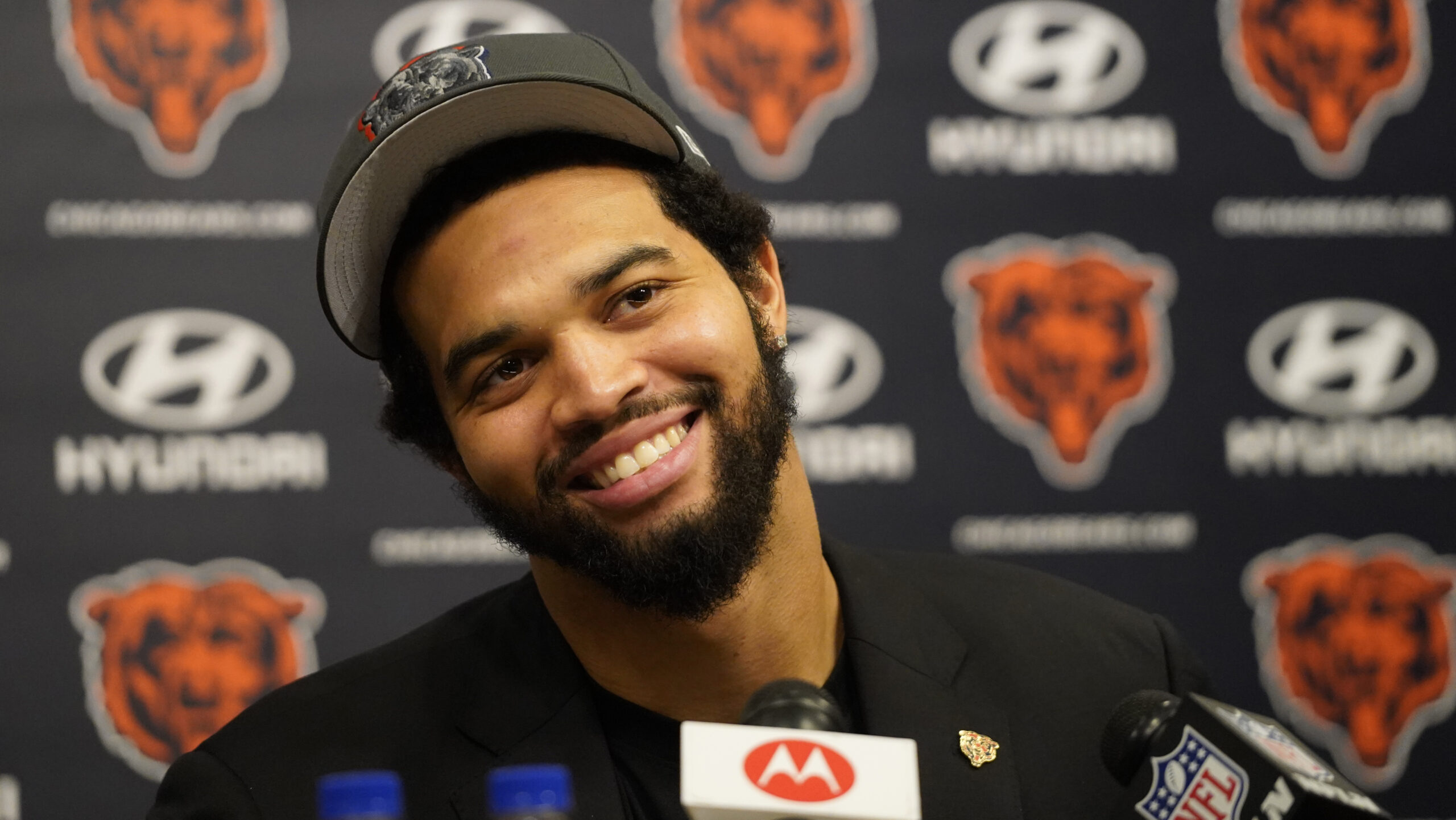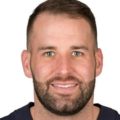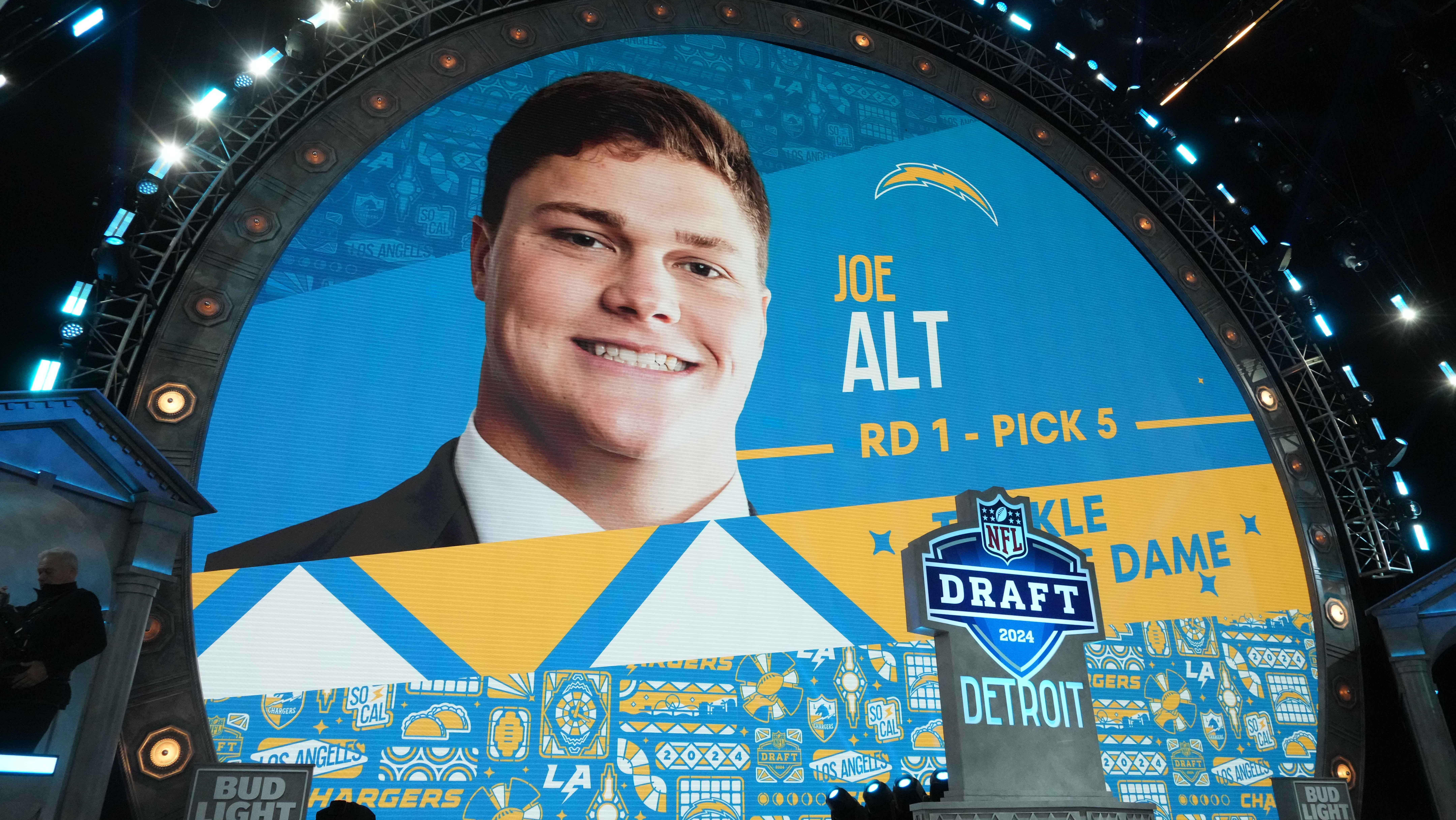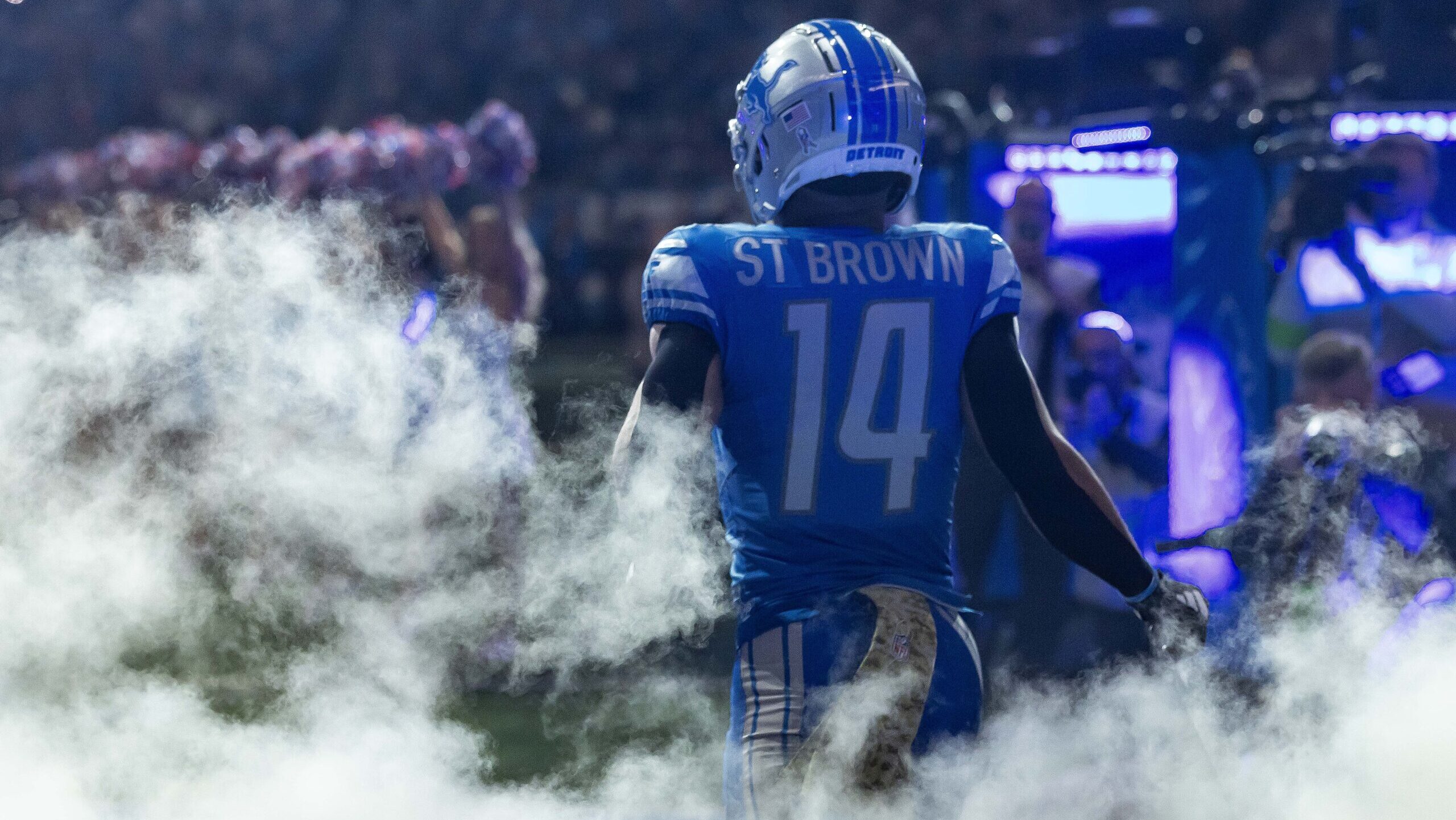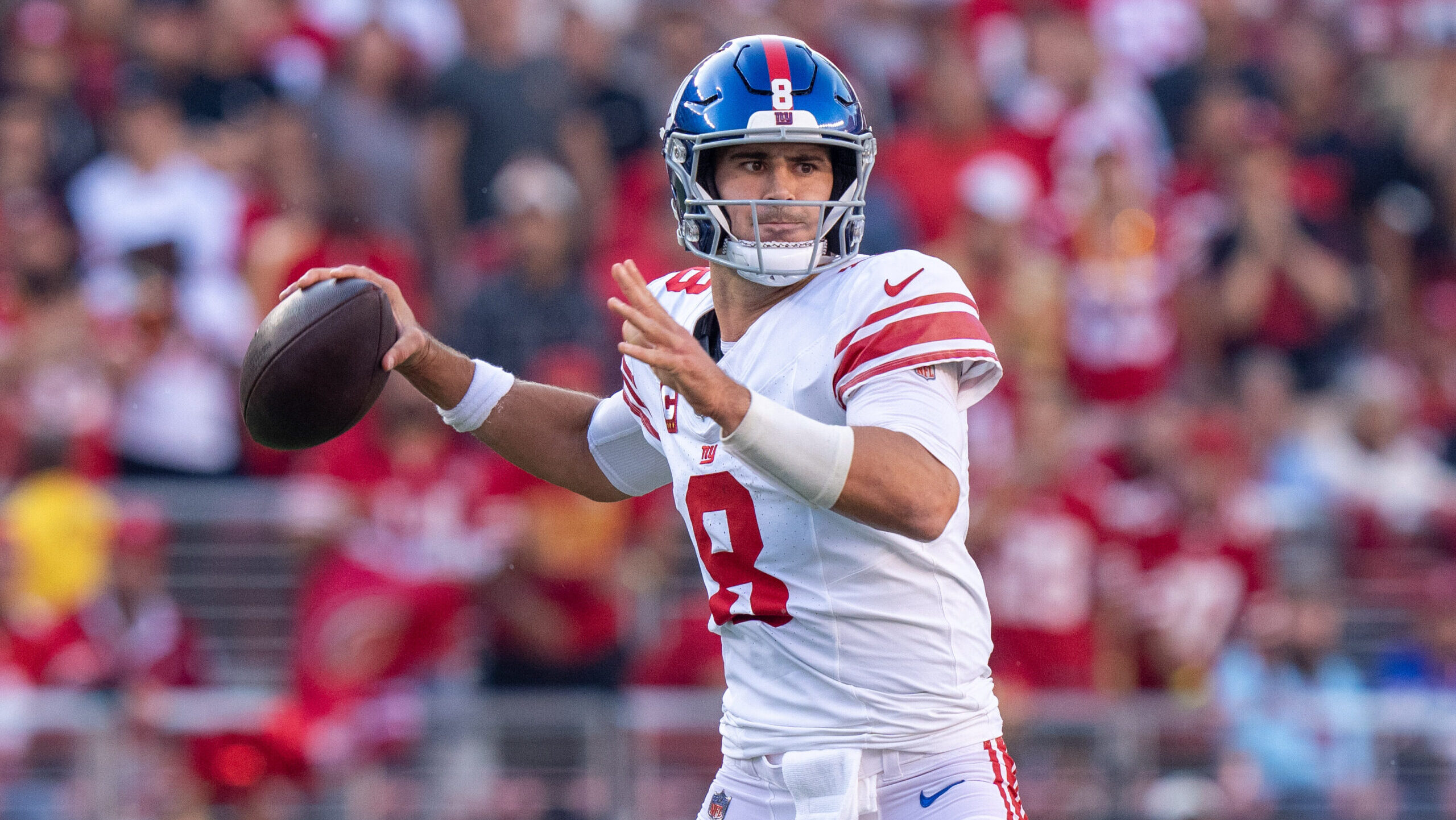Analysis
9/28/23
11 min read
Prime Time Rerun? Don't Be Surprised If Deion Sanders Coaches in NFL
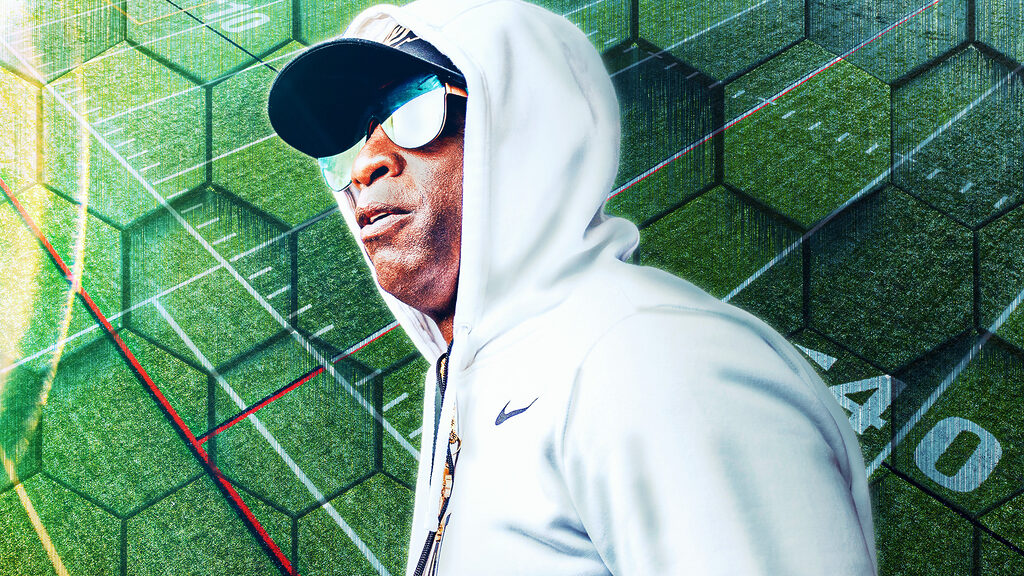
Deion Sanders is three games into his tenure as a major college football coach, but one thing is clear to people who watch carefully.
He has what it takes to be an NFL coach. From charisma to picking a coaching staff, those who have been close to Sanders over the years think it’s a no-brainer. He may not want an NFL job, as he has already said. That doesn’t mean that some team (or teams) won’t come calling.
From former NFL executives to former NFL players to a writer who has known Sanders since his days in college playing for famed coach Bobby Bowden, a litany of people believe Sanders could take another step to the highest level of the game if he wanted to.
- He gets the executive nature of being a head coach.
- He’s a genius in understanding the game, even though most people don’t know it.
- He knows how to hire extremely talented assistant coaches.
- He draws people to him, and he can motivate them.
- He has the charisma to draw attention and sell tickets.
Let’s break those down one at a time:
5 Reasons Deion Sanders Would Succeed in NFL
The Executive Side
“Deion gets it, and he always has,” said former San Francisco 49ers and Cleveland Browns executive Carmen Policy, who has spent nearly four decades in and around the NFL. In 1994, Policy and the 49ers spent a month wooing Sanders, eventually signing him to what amounted to a one-year deal for a little more than $1 million.
The deal was well below the market at the time. Sanders had another offer on the table from the New Orleans Saints for four years and $17 million. The Oakland Raiders and Al Davis wanted him, too, and Davis was always willing to pay cornerbacks.
The overwhelming majority of football players think about getting the biggest contract they can get at a given time. It’s human nature accentuated by the grueling nature of the sport. Sanders and his agent, the late, great Eugene Parker, had a bigger plan. They wanted to raise Sanders’ already lofty status from sports star to icon. Sanders may already have been known as Prime Time because of his electric play for the Atlanta Falcons and sometimes stunning performances in baseball, but there was a next level.
Sanders needed a Super Bowl title. Moreover, he needed to be perceived as a power broker, the type of player who could swing one team from contender to champion. For their part, the 49ers were under their own self-induced pressure, trying to win a fifth Super Bowl and first with Steve Young at quarterback. San Francisco desperately wanted to break the Dallas Cowboys’ two-year hold on the title and prove that it had made the right move to go from Joe Montana to Young.
After Policy and Parker worked out the details of the contract to assure that Sanders would hit the market after the season and that the 49ers could fit the deal within the salary cap, it was a matter of Sanders feeling comfortable with the organization. Sanders had certain preferences: He wanted to return punts and kicks and play wide receiver whenever possible, and he had a small entourage he liked to travel with.
None of that sat well with 49ers coach George Seifert, no matter how much Policy tried to assuage the narrowly focused coach.
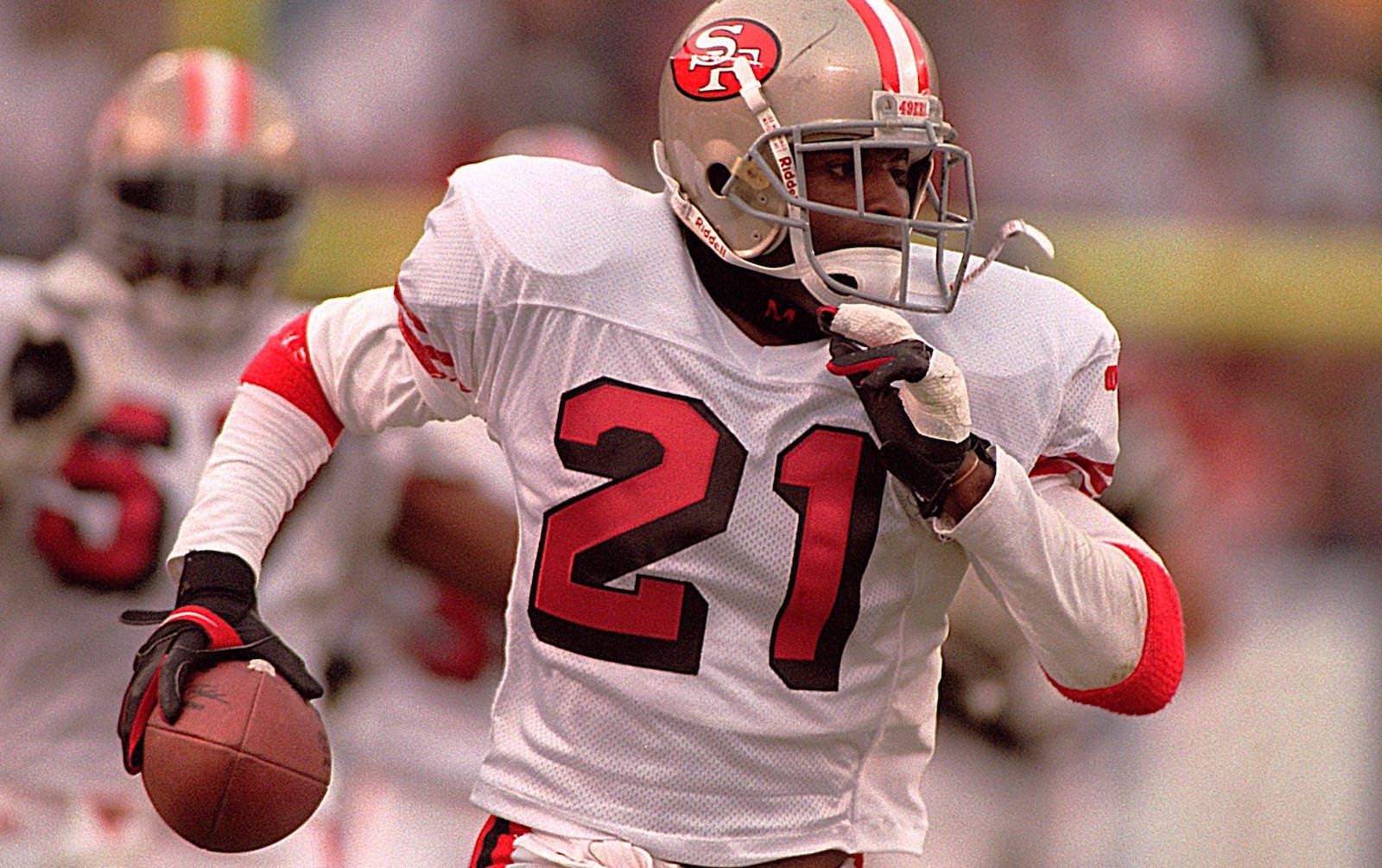
“I tried to get George to ease up a bit on a few things … but George was always a pretty straight-ahead, straight-forward guy. If it works and we’re winning, this is how we’re going to do it, and we’re not going to deviate,” Policy said.
Sanders flew in for a meeting with Seifert. As Policy, owner Eddie DeBartolo and defensive coordinator Ray Rhodes sat in the hotel bar of the San Francisco Airport Marriott where the team stayed the night before games, Sanders met with Seifert at the 49ers headquarters in Santa Clara. The three members of the 49ers brass vowed not to have a drink until Sanders returned.
They broke the vow relatively quickly as they nervously waited.
When Sanders returned, the first thing he said was, “Well, that wasn’t a recruiting trip.” That was to say that Seifert wasn’t going to just give Sanders what he wanted. Seifert wanted Sanders as a cornerback only. Seifert left open the idea that playing offense and returning kicks could happen down the line. Still, this was Seifert’s team, and he was going to run it his way. If Sanders could deal with that, they could work together.
Sanders agreed and had perhaps the finest season of his career with six interceptions and three touchdowns on interception returns. He earned the NFL Defensive Player of the Year award. The 49ers won the Super Bowl and Sanders became a free agent and cashed in with a seven-year, $35 million contract from Dallas in the offseason. He then helped the Cowboys win the Super Bowl the next season, cementing his legacy as an NFL power broker.
“What Deion was trying to do was much bigger than just get a new contract,” Policy said. “He and Eugene had a much bigger plan and that plan required a vision. That vision aligned with what we were trying to do, and Deion saw that if he was willing to take less money from us, he could get what he wanted. Most players would never have considered that path. He did, even though he didn’t get everything he wanted initially.”
The Football Genius
There are a vast number of people who have dismissed Sanders’ expertise in football because he was one of the most gifted athletes ever to play professional sports. Some of the derision is also due to Sanders’ general disdain for tackling.
But the fact is Sanders was, as former quarterback Trent Green put it, a guy whose “talent was matched by his preparation.” Former teammates talk about how Sanders used to walk around with a portable video player watching game tape of his upcoming opponent. Sanders rarely left a second of preparation to chance.
Moreover, his overall understanding of the game plan allowed him to know when he could gamble and when he had to play it safe. He was the king of baiting quarterbacks into believing they had a slant pass available because the free safety would be focused on the other side of the field, only to cut under the receiver for an interception.
Additionally, Sanders understood the big picture of how the offense and defense worked together. That was important as Sanders did the next item on his checklist.
Hiring a Good Staff
What Sanders lacks in coaching experience, he has more than made up for with the people he has hired. His Colorado staff has six coaches and/or consultants who have combined for more than 200 years as either assistants or head coaches. That group consists of former Alabama assistants Charles Kelly and Sal Sunseri, Tim Brewster, Bill O’Boyle, former Rex Ryan right-hand man Dennis Thurman and former New York Giants head coach Pat Shurmur.
On top of that, Sanders convinced offensive coordinator Sean Lewis to leave his post as the head coach at Kent State to come to Colorado. Thurman and secondary coach Kevin Mathis played a combined 19 years in the NFL, and Hall of Fame defensive tackle Warren Sapp recently joined the staff.
“That’s as important as anything,” said former NFL safety and long-time sports executive Merton Hanks. “Bill Walsh used to say all the time that great coaches keep great coaches around them. You pay attention to other great coaches like Jim Harbaugh and Kirk Ferentz and they’re doing the same thing. That’s not just a college thing, that’s a concept that’s important at every level.”
Writer Don Yaeger, who is working on a project with Sanders, said: “He has clearly said he doesn’t want to coach in the NFL, but the reason I would say ‘absolutely, yes’ that he would be a great NFL coach is that you see what Deion did at both Jackson State and Colorado. Through the force of his personality and his respect for the game, he hired great coaches around him … What you see in Deion is what you saw in Bobby Bowden, who Deion played for at Florida State. Bowden was a great head coach who understood that the job is about being a CEO who surrounds himself with great assistants and players.”

People Follow, and He Motivates
Much has been made of Sanders getting two-way star Travis Hunter to come to Jackson State and then follow him to Colorado. Many considered Hunter the best player in the country coming out of high school, and he is expected to be a high draft pick.
That has been somewhat standard for Sanders, whose magnetic personality still resonates with current and former NFL players. Long-time NFL reporter Albert Breer of Sports Illustrated noted how when he and Sanders worked at NFL Network, current players would constantly come up to him and ask about Sanders. If Sanders asked for an interview, it was practically an automatic yes response.
That’s because people are drawn to Sanders.
“What’s most important to coaching is relationship building,” Hanks said. “It’s people management skill. Deion has mastered the art of dealing with high-profile personalities while also not diminishing himself or trying to diminish them with his presence.
“Let’s face it, we’re talking about a lot of divas, people who really believe in themselves. Deion is able to bring them in and make them feel important and not alienate them … (He) is one of the few people who, when you leave the conversation, you feel enlightened, validated and empowered at the same time. Deion has mastered that skill.”
Or as Green put it: “I don’t know how much of the coaching he’s involved in from a day-to-day standpoint … but Deion does a great job of getting great players to be at their best, of getting good players to be great, getting medium players to be good and getting bad to be good, too. That’s what I see from the outside. He really knows how to get the best out of people.”
Sanders Is a Big Draw
There aren’t many coaches in the NFL who owners feel compelled to hire, but there are still a few, and Sanders is quickly becoming that kind of show because of all the media attention he draws. In only his first year at Colorado, Sanders has become the dominant story. His combination of charisma, past success and hubris makes him a man who people love or love to hate.
This week, former NFL player and current media personality Keyshawn Johnson revealed that coaches around the country have been sharing information like never before about how to beat Colorado because of how much other coaches dislike Sanders.
Aside from the sideline, Sanders appears in ads for companies such as Aflac and Kentucky Fried Chicken. He has been on CBS’s famed show “60 Minutes” twice in the past two years. He is a camera magnet who has caused enough excitement to sell out games in Colorado and draw TV audiences that run into the millions.
“You’re talking about TV numbers of nine or 10 million viewers,” Hanks said. “Those are NFL numbers for a college program that was terrible last year. That’s the kind of attention that gets noticed by owners who need to put butts in the seats. Now, he’s going to need a type of contract and commitment from an owner that gives him time because he would probably be going into a bad situation in that case, but that could be worked out.”
Jason Cole has covered or written about pro football since 1992. He is one of 49 selectors for the Pro Football Hall of Fame and has served as a selector since 2013. Cole has worked for publications such as Bleacher Report, Yahoo Sports, The Miami Herald and The Fort Lauderdale Sun-Sentinel. You can follow Jason on Twitter @JasonCole62.


